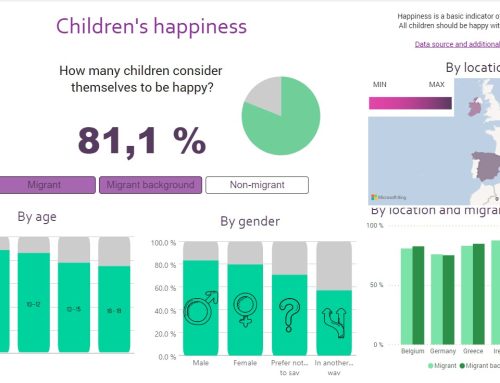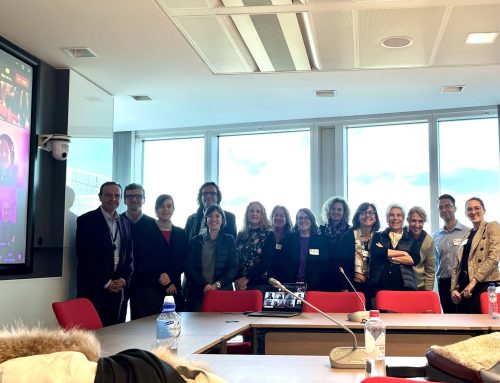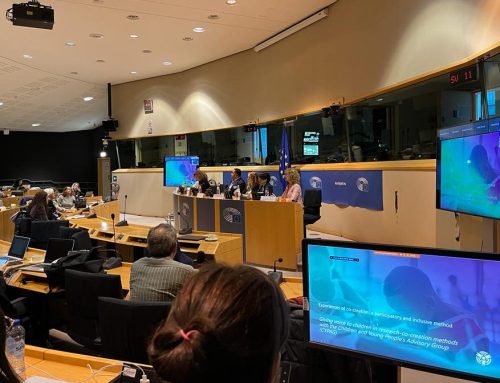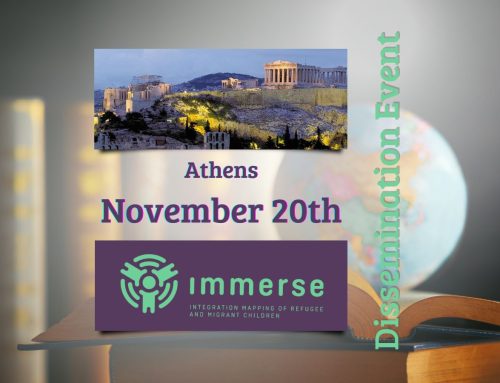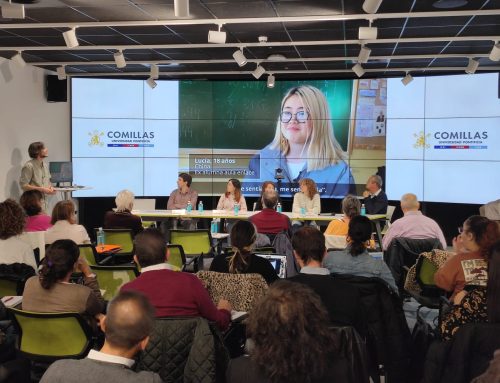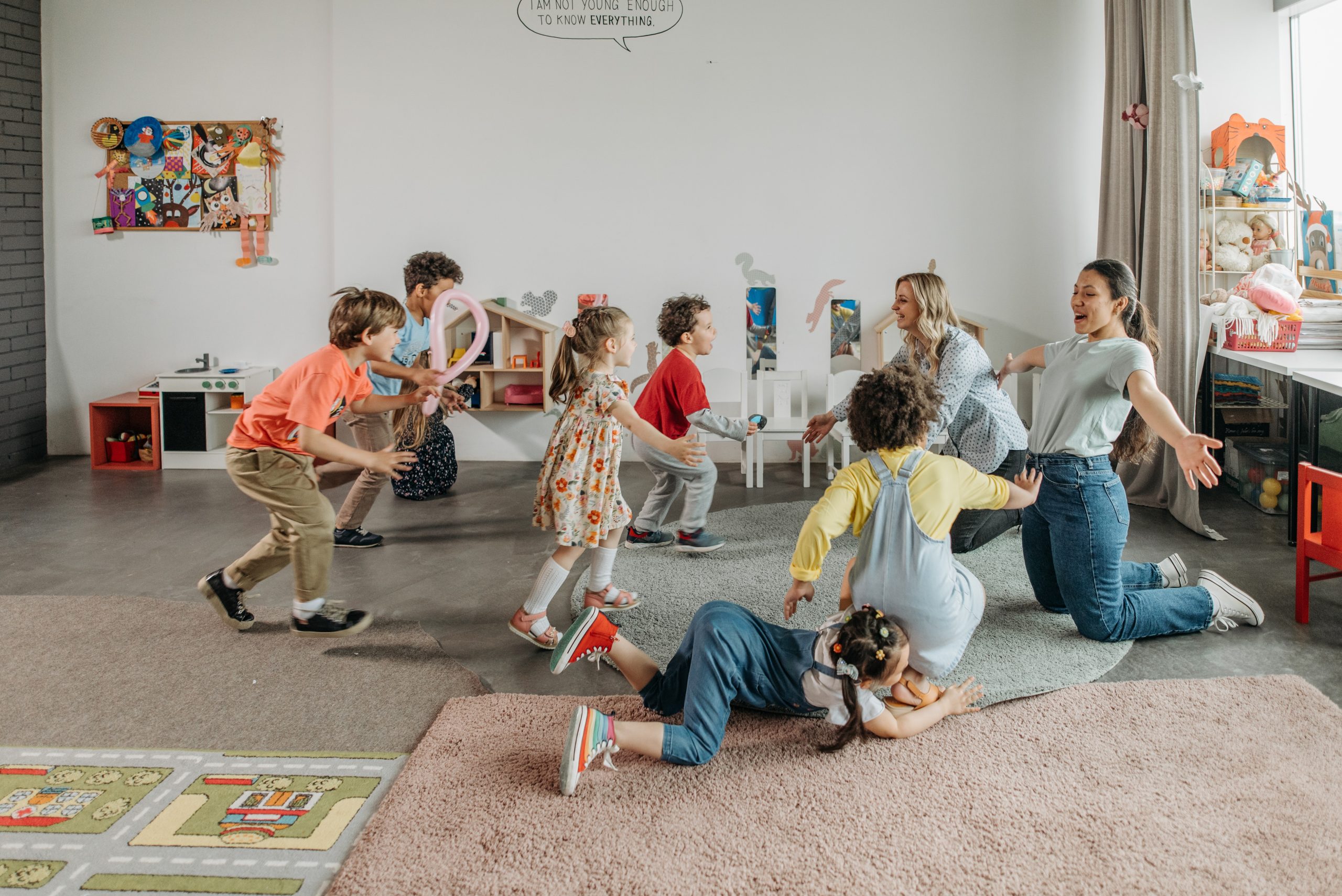
IMMERSE was born out of the concern for ensuring that Europe meets the challenges and the potential involved in the successful inclusion of all refugee and migrant children across the continent. Today, with the massive arrival of refugees from Ukraine, we renew our concern and determination for ensuring that schools, cities, regional authorities, and governments have the means and guidance to successfully integrate these children, and to care for and protect them. This is not only required to fulfil international obligations, but to ensure the well-being of these children. And it is also an investment with benefits for the whole society.
For this reason, we would like to share the resources and tools of the IMMERSE project to support schools, teachers, authorities, and other interested stakeholders in this endeavour. These resources and tools build on extensive research on this area, both within and beyond our project.
1. Guiding principles for the reception and inclusion of refugee and migrant children.

These ten principles are based on the results of a co-created methodology (involving children and other stakeholders) to define 30 key indicators to monitor socio-educational inclusion. The Guiding Principles are available to read and download in different languages through the NEWS section and in the MEDIA CORNER – RESOURCES section of the IMMERSE website.
2. Good practices compilation.
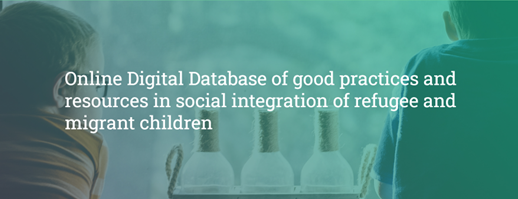
An Online Digital Database is available in our website showcasing 60 good practices at national and international levels and other tools and resources aimed at achieving the best possible inclusion of migrant and refugee children. It is available in Dutch, English, French, German, Greek, Italian, and Spanish.. The database includes information on the replicability and purpose of all the resources. A report will also soon be published with additional insights on 12 selected good practices and first reflections about policy recommendations addressed to the national and EU educational and policy sectors.
3. Specific educational resources for schools.
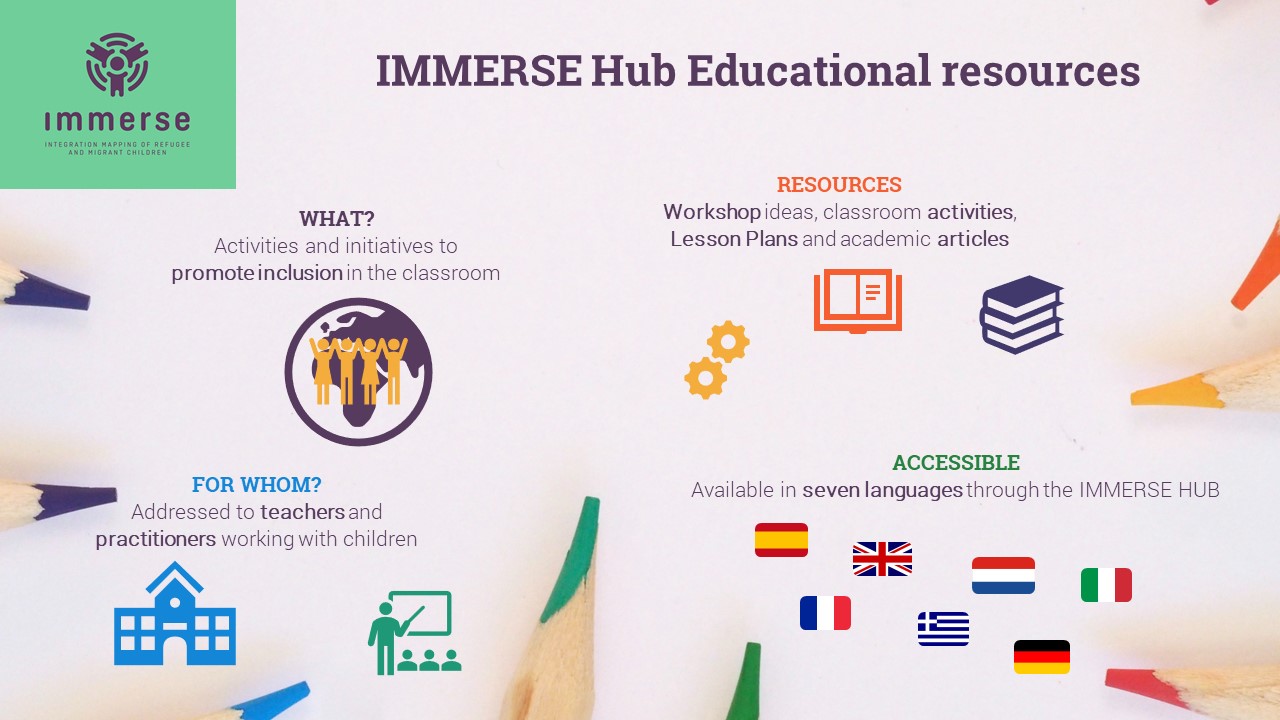
50 educational resources have been gathered and shared in our digital platform (IMMERSE Hub), which is intended as a platform for exchange and further discussion. We invite you to start new conversations there and further exchange views, concerns, and resources. Find here our tutorials on how to enter the hub (DE, EN, ES, FR, GR, IT, and NL.)
4. Co-creation with children and stakeholders, and bottom-up approach.
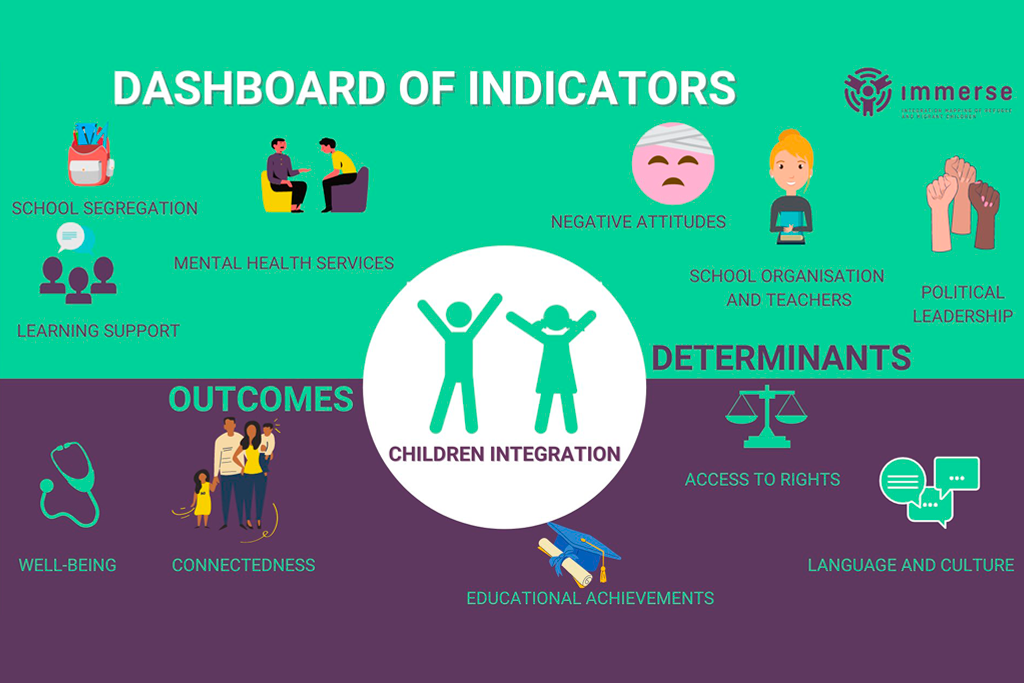
We firmly believe in the importance of the participation of children in discussing their needs and how these should be addressed. We think schools and policymakers should also (and would benefit from) adopting this type of approach. Some practical materials are available in our Good practices compilation and we have a dedicated group in our digital platform, the IMMERSE Hub, named „CO-CREATION„. A manual with techniques to help implement this approach will soon become available in our website.
5. Working papers and policy briefs.

The three working papers currently available present the results of qualitative research with children and stakeholders on the psycho-social well-being of refugee and migrant children; intercultural competences and multilingualism; and gender issues. The policy briefs focus on promoting an intercultural approach to the design of EU policies and specific EU measures to tackle the impacts of the covid-19 crisis on migrant and refugee children integration. These publications are available here.

